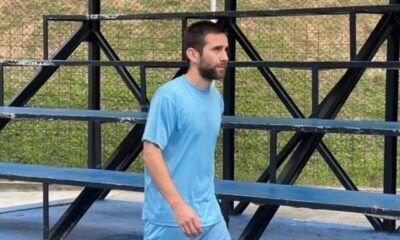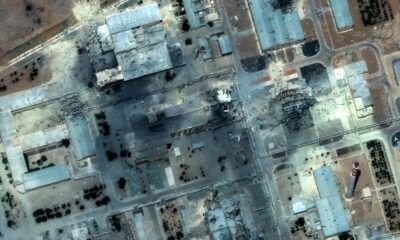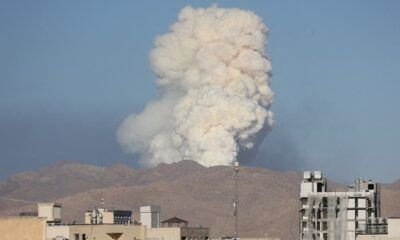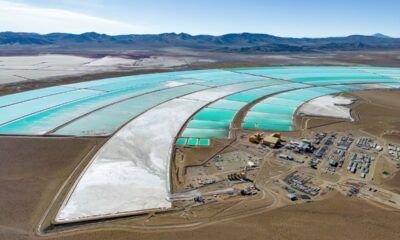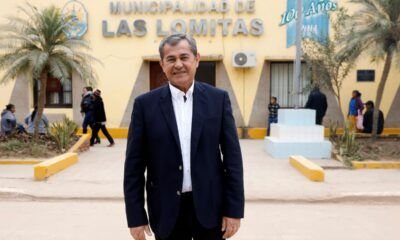INTERNACIONAL
Nicolás Maduro rechazó el intercambio de prisioneros que le propuso Nayib Bukele y lo criticó con dureza

Luego de que el presidente de El Salvador, Nayib Bukele, le propusiera a Nicolás Maduro el intercambio de más de 250 ciudadanos venezolanos deportados por Estados Unidos que permanecen en cárceles salvadoreñas a cambio de que su colega devuelva a la misma cantidad de presos políticos, llegó la respuesta del presidente venezolano, quien rechazó la oferta, dijo que el salvadoreño tiene secuestrados a sus conciudadanos y exigió su liberación.
Bukele había hecho su propuesta el domingo, a través de un posteo en la red social X. «Quiero proponerle un acuerdo humanitario que contemple la repatriación del 100 % de los 252 venezolanos que fueron deportados, a cambio de la liberación y entrega de un número idéntico (252) de los miles de presos políticos que usted mantiene», expresó el extenso mensaje del presidente salvadoreño, en el que aseguró además que la propuesta formal sería enviada por la Cancillería de su país.
La respuesta de Maduro llegó este lunes a través del programa de televisión «Con Maduro +», que él mismo conduce. “Bukele es un violador serial del derecho a la libertad, al trato justo y la dignidad del ser humano”, afirmó el venezolano durante su más reciente emisión, y más tarde aseguró que «Bukele ha actuado bajo los patrones y los cánones de la violación serial de los derechos humanos y ha actuado en los esquemas de los nazis».
En su respuesta, Maduro aseguró que la oferta de Bukele es «completamente ilegítima, ilegal, abusiva” y que dejó en evidencia que el país centroamericano “tiene secuestrados” a los venezolanos deportados por Estados Unidos. El venezolano aseguró además que los detenidos en El Salvador no cometieron ningún delito en ese país.
«Yo le digo señor Bukele, póngase a derecho, diga dónde están enjuiciados, qué causa qué delito cometieron, permita el acceso de sus abogados y familiares a la visita en la prisión donde los tiene secuestrados, abandone el camino de la desaparición forzosa», instó Maduro este lunes, y pidió al salvadoreño que firme “un decreto dándole la libertad incondicional” a los deportados y permita «regresar a Venezuela a todos los 252 muchachos”.
Entre los presos políticos cuya libertad reclamó el presidente de El Salvador figuran Rafael Tudares, yerno de Edmundo González; el periodista Roland Carreño; la abogada y activista Rocío San Miguel; la señora Corina Parisca de Machado, madre de María Corina Machado y los cuatro dirigentes políticos asilados en la embajada de Argentina.
Además, hay personal de campaña, activistas y periodistas, muchos de ellos detenidos tras las protestas que siguieron a las elecciones de julio pasado, cuestionadas por falta de transparencia.
Señor @NicolasMaduro, usted ha dicho en numerosas ocasiones que quiere a los venezolanos de regreso y en libertad.
A diferencia de usted, que tiene presos políticos, nosotros no tenemos presos políticos. Todos los venezolanos que tenemos bajo custodia fueron detenidos en el…
— Nayib Bukele (@nayibbukele) April 20, 2025
Bukele también había incluido en su pedido a “los casi 50 ciudadanos detenidos de otras nacionalidades: estadounidense, alemana, dominicana, argentina, boliviana, israelí, chilena, colombiana, ecuatoriana, española, francesa, guyanesa, neerlandesa, iraní, italiana, libanesa, mexicana, peruana, puertorriqueña, ucraniana, uruguaya, portuguesa y checa”.
“La única razón por la que están encarcelados es por haberse opuesto a usted y a sus fraudes electorales”, había expresado el salvadoreño el domingo.
Por su parte, El Salvador mantiene en una cárcel de máxima seguridad a un grupo de ciudadanos venezolanos. Entre ellos, hay presuntos criminales de la pandilla Tren de Aragua y migrantes irregulares que fueron deportados por Estados Unidos.
La propuesta se produjo en momentos que el país centroamericano se encuentra bajo un intenso escrutinio internacional por recibir a venezolanos deportados por el gobierno de Donald Trump, que los acusó de ser presuntos pandilleros con escasas pruebas.
Human Rights Watch acusó recientemente a Estados Unidos y El Salvador de la desaparición y detención arbitraria de venezolanos y denunció que las autoridades salvadoreñas y estadounidenses no han dado información a los familiares del paradero de los deportad
Por su parte, las elecciones de 2024 en Venezuela fueron tildadas de fraudulentas, luego de que Maduro se autoproclamase ganador sin mostrar las actas que validasen ese resultado. Por su parte, la oposición presentó pruebas, avaladas por observadores internacionales, de una votación que le daban la ventaja por 2 a 1 al candidato opositor Edmundo González.
No obstante, Maduro fue declarado ganador de los comicios por las autoridades electorales sin que hasta ahora hayan publicado las actas de votación.
Nayib Bukele,Nicolás Maduro,Venezuela,El Salvador,Últimas Noticias
INTERNACIONAL
Tras la guerra de los 12 días, la dictadura de Nicaragua desafía a Occidente con un contundente apoyo al programa nuclear iraní

Tras la reciente guerra de 12 días entre Israel e Irán, que puso al mundo al borde de un conflicto global, la dictadura nicaragüense de Daniel Ortega y Rosario Murillo reafirmó su alianza política, ideológica y estratégica con el régimen de los ayatolás.
El respaldo explícito a la República Islámica convierte a Nicaragua en una ficha clave en el tablero geopolítico global, justo cuando Estados Unidos advierte que “los países de América Latina deben elegir de qué lado van a estar”.
El pasado lunes 23 de junio, en un acto oficial transmitido por la televisión estatal, Ortega reiteró su respaldo al régimen de Irán, justificó su programa nuclear y atacó a Israel y Estados Unidos. “Para que ningún país sea agredido, sancionado, invadido, bombardeado, todos los países deberían tener sus armitas atómicas”, afirmó el dictador nicaragüense, en una apología apenas disimulada de la proliferación nuclear.
Aunque luego pidió el desarme de las grandes potencias, dejó entrever un guiño a la carrera armamentista: “Si a nosotros se nos ocurriera buscar unos cuantos cohetes para que no nos toquen… pero no se nos ocurre”.
No es la primera vez que Ortega reclama el derecho a tener armas atómicas. “Que solo unos (países) tengan derecho a tener bombas atómicas eso no es democracia, eso es tiranía, es dictadura”, apuntó Ortega en un discurso, en junio de 2021.
Lo hizo de nuevo en febrero de 2023 cuando recibió al entonces canciller iraní, Hossein Amir Abdollahian. “En este mundo lo que cabría es que todos buscáramos cómo tener nuestra armita atómica para que nos respeten, porque ahí sí respetan cuando saben que a ese que quieren aplastar tiene el arma atómica”, expresó.
La retórica de Ortega se alinea abiertamente con regímenes autoritarias como Irán, Rusia, China y Corea del Norte. “La esperanza está en estas potencias como China… lo mismo pasa con la Federación Rusa”, reafirmó, y en otro tramo del discurso, defendió a Corea del Norte: “Se han reventado de furia cuando el presidente de Corea del Norte anuncia que no se van a quedar de brazos cruzados ante una agresión”.
Pero el respaldo más explícito fue para Irán. Ortega tildó de “verdugo” al primer ministro israelí Benjamín Netanyahu y sostuvo que los ataques israelíes y estadounidenses contra Irán son “una guerra de desgaste”.
Aseguró que el programa nuclear iraní es “para fines pacíficos” y acusó a Occidente de manipular la información.

El estrecho vínculo entre Nicaragua e Irán no es nuevo. Comenzó formalmente en 1979, con el triunfo casi simultáneo de las revoluciones sandinista e islámica, cuando Irán empezó a ver hacia Latinoamérica, sobre todo estrechando lazos ideológicos con Cuba y Nicaragua.
“La ambición de Irán es tener influencia y presencia militar como la tiene en el Medio Oriente”, indicó Joseph Humire, experto en seguridad global y antiterrorismo, director del Centro para una Sociedad Libre y Segura con sede en Washington, en el informe de Diálogo Américas publicado en febrero de 2024. “Obviamente, estamos hablando de otra parte del mundo, donde llegar a ese nivel tomará tiempo, pero todo indica que va hacia esa dirección”.
La relación de Irán con Nicaragua se profundizó a partir de 2007, con el retorno de Ortega al poder. Desde entonces, Managua ha sido escenario de visitas de altos funcionarios iraníes, como el ex canciller Hossein Amir‑Abdollahian y, tres meses después, el propio fallecido presidente Ebrahim Raisi, en junio de 2023.

Durante esas visitas se firmaron múltiples convenios: cooperación en salud, tecnología, exportaciones, ciencia, industria y agricultura. “Con la firma de este memorando ambos países hermanos adoptamos un mecanismo de coordinación y consultas regulares”, dijo el canciller nicaragüense Denis Moncada en febrero de 2023. En junio, se ratificó la creación de una Comisión Binacional Intergubernamental.
Sin embargo, más allá de las declaraciones y documentos, Estados Unidos ve con preocupación el uso potencial de Nicaragua como plataforma para operaciones iraníes.
Durante la visita del canciller iraní, Laureano Ortega Murillo, hijo de Daniel Ortega y Rosario Murillo, ofreció a Nicaragua como una plataforma para el régimen de Irán en Centroamérica. “Irán tiene un gran desarrollo tecnológico, industrial, comercial, del cual Nicaragua puede verse altamente beneficiado y Nicaragua tiene y juega un papel fundamental en la región centroamericana como una plataforma para la exportación de productos, para hacer una vitrina de productos iraníes en toda la región centroamericana, también un papel muy importante en la diplomacia y la geopolítica”, dijo Ortega Murillo.
Analistas señalan que Irán podría estar replicando el modelo utilizado en otros países, como Argentina, donde utilizó sedes diplomáticas para establecer redes de inteligencia y apoyo logístico al grupo terrorista libanés Hezbollah.
A esa preocupación se suma un informe de inteligencia filtrado por el Pentágono y citado por The New York Times en abril de 2023, que revela que altos funcionarios de Nicaragua e Irán discutieron en privado la posibilidad de una cooperación militar directa. El reporte alertó sobre un creciente acercamiento estratégico que podría incluir desde asistencia militar hasta el uso de Nicaragua como canal logístico o base de operaciones encubiertas.
En noviembre del año pasado, la dictadura nicaragüense aprobó la Ley de Telecomunicaciones Convergentes, que amplía la capacidad del régimen para intervenir llamadas, rastrear comunicaciones y operar un sistema de vigilancia masiva. Aunque no se ha confirmado cooperación directa de Irán en este campo, los expertos advierten que la red de control digital instalada podría estar recibiendo asesoría o apoyo técnico de Teherán.

El Departamento de Estado norteamericano, en voz de una alta funcionaria, advirtió recientemente que “Nicaragua, Cuba y Venezuela son enemigos de la humanidad”, no solo por su represión interna, sino por su cercanía con “un régimen que es un patrocinador estatal del terrorismo”. La diplomática agregó en la víspera de la Asamblea General de la OEA celebrada esta semana: “Es momento de que los países de América Latina decidan de qué lado están”.
La alianza entre Ortega y el régimen iraní ha tenido momentos simbólicos de alto valor propagandístico. En 2007, durante su visita a Teherán, Ortega calificó a ambas revoluciones como “hermanas gemelas”. Desde entonces, ha repetido el discurso antiimperialista de Teherán, y en más de una ocasión ha defendido su derecho a desarrollar potencial nuclear.
El ex canciller nicaragüense, ex reo político y actualmente en el exilio, Francisco Aguirre Sacasa, advirtió en 100% Noticias que “esa relación es tóxica para el país. Nos arriesgamos a sanciones, aislamiento y a convertirnos en un blanco geopolítico”. El ex embajador Mauricio Díaz coincidió: “Estamos jugando con fuego. Convertirse en el peón de Irán no es soberanía, es suicidio”.
En 2012, informes de inteligencia israelíes alertaron sobre la presencia de Hezbollah en Nicaragua, aunque Managua negó los señalamientos.
Opositores en el exilio han condenado la ruta que siguen los Ortega Murillo. “Ortega está entregando el país a una alianza de dictaduras”, dijo desde Costa Rica el dirigente opositor Félix Maradiaga. “Hoy somos plataforma para Irán; mañana podríamos ser blanco de represalias”.

Los acuerdos económicos firmados con Irán, como el proyecto de un puerto en el Caribe, una conexión ferroviaria y una planta cementera, han quedado en promesas. Pero el objetivo principal del vínculo parece ser político e ideológico: consolidar un bloque de países alineados contra Estados Unidos.
En la región, la reacción ha sido mixta. Mientras Venezuela y Cuba respaldan a Irán, países como Brasil y Colombia han marcado distancia. México guarda silencio. Pero el alineamiento de Ortega con Teherán tiene implicaciones que trascienden lo local: Nicaragua podría convertirse en un punto de tránsito, inteligencia o incluso entrenamiento para redes iraníes o sus aliados.
“El peligro no es que Irán instale una base militar en Nicaragua, sino que ya lo esté usando como una base de operaciones encubiertas”, alertó Humire.
diplomacy,iran,politics,usa
INTERNACIONAL
University of Virginia president resigns amid pressure from Trump admin over DEI initiatives

University dean out of job after pushing DEI
Oklahoma state superintendent Ryan Walters and The Mom Wars’ Bethany Mandel react to UNC Asheville Dean of Students Megan Pugh being ousted from her position after admitting to pushing DEI initiatives.
NEWYou can now listen to Fox News articles!
The University of Virginia president stepped down on Friday after facing intense pressure from the Trump administration over the institution’s diversity, equity and inclusion initiatives.
James E. Ryan, who had led the school since 2018, said he had already decided that next year would be his last and decided not to «fight the federal government in order to save my own job» until then.
To make a long story short, I am inclined to fight for what I believe in, and I believe deeply in this University,» Ryan wrote to the UVA community on Friday. «But I cannot make a unilateral decision to fight the federal government in order to save my own job. To do so would not only be quixotic but appear selfish and self-centered to the hundreds of employees who would lose their jobs, the researchers who would lose their funding, and the hundreds of students who could lose financial aid or have their visas withheld.»
«This is especially true because I had decided that next year would be my last, for reasons entirely separate from this episode—including the fact that we concluded our capital campaign and have implemented nearly all of the major initiatives in our strategic plan,» he continued.
TRUMP’S DOJ PRESSURING UNIVERSITY OF VIRGINIA TO AXE ITS PRESIDENT OVER DEI PROGRAMS: REPORT
University of Virginia President James E. Ryan stepped down after facing intense pressure from the Trump administration. (Getty Images)
Robert D. Hardie, leader of the University of Virginia’s governing board, said in a statement he accepted Ryan’s resignation with «profound sadness,» adding that he had been an «extraordinary president,» led the institution to «unprecedented heights» and that the university «has forever been changed for the better as a result of Jim’s exceptional leadership.»
This comes after the Trump administration had privately demanded that the university remove Ryan to help resolve a Justice Department probe into the institution’s DEI practices, according to The New York Times.
The Justice Department argued that Ryan had failed to dismantle the school’s DEI programs and misrepresented the steps taken to eliminate them, amid the administration’s efforts to root out DEI in higher education, the newspaper reported.
The federal government’s moves targeting higher education include pulling billions of dollars from elite universities such as Harvard, which has been the subject of investigations by various agencies over issues such as DEI initiatives, admissions practices and alleged antisemitism on campus.
But this was the first time the administration had pressured a university to remove its president.
«That sham virtue signaling of DEI has no place in our country, and the Trump administration is working tirelessly to erase this divisive, backward, and unjust practice from our society,» White House spokesman Harrison Fields told Fox News Digital.
«Any university president willingly breaking federal civil rights laws will be met with the full force of the federal government, and it would behoove every school in America to prioritize the civil rights of every student and end DEI once and for all,» he continued.
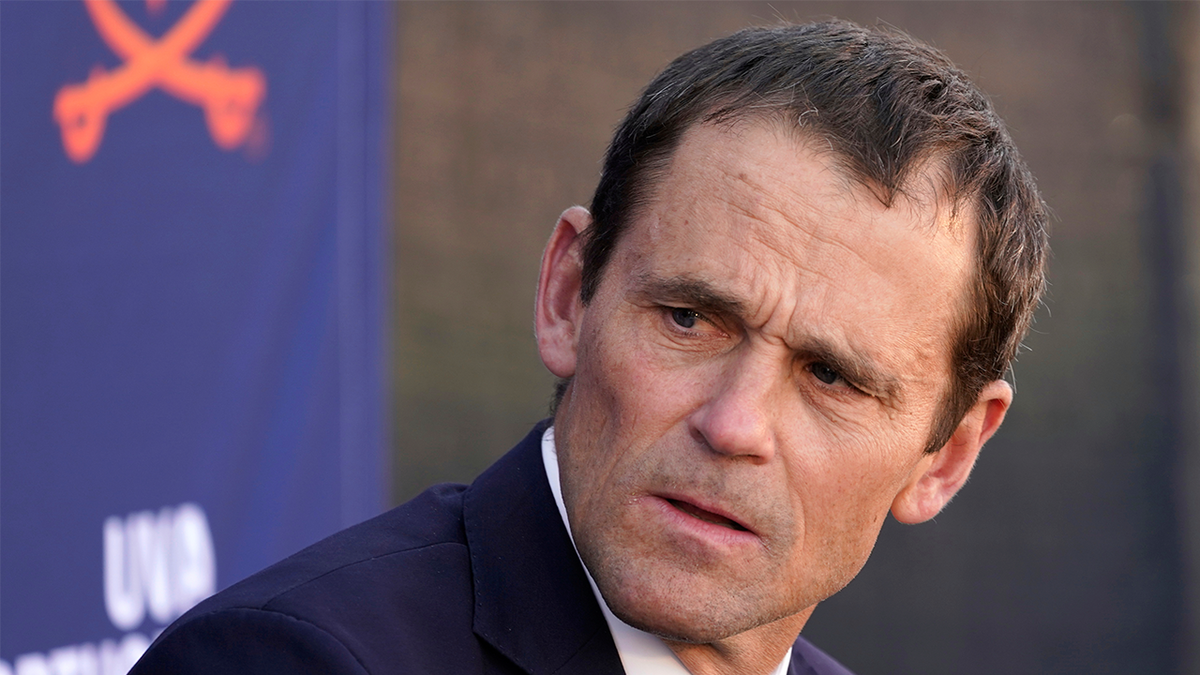
James Ryan, who had led the school since 2018, said he had already decided that next year would be his last. (AP)
Ryan had focused on increasing diversity at the university, bringing in more first-generation students and encouraging community service. These efforts had ruffled the feathers of conservative alumni and Republican board members who argued he was «too woke» and wanted to impose his beliefs on students.
Before his time as the university’s president, Ryan served as the dean of the Harvard Graduate School of Education, where he received recognition for his commitment to DEI programs.
In a joint statement, Virginia’s Democratic senators said it was «outrageous» that the administration would demand Ryan’s resignation over «‘culture war’ traps.»
«Decisions about UVA’s leadership belong solely to its Board of Visitors, in keeping with Virginia’s well-established and respected system of higher education governance,» Sens. Mark Warner and Tim Kaine said. «This is a mistake that hurts Virginia’s future.»
Conservative groups have lambasted Ryan for what they regard as insufficient steps toward compliance with the administration’s plans to eliminate DEI. America First Legal, a nonprofit launched by Trump advisor Stephen Miller, accused the University of Virginia last month of rebranding DEI programs to skirt Trump’s executive orders aimed at ending diversity initiatives.
HARVARD KENNEDY SCHOOL ANNOUNCES LAYOFFS AFTER TRUMP CUTS BILLIONS IN FUNDING
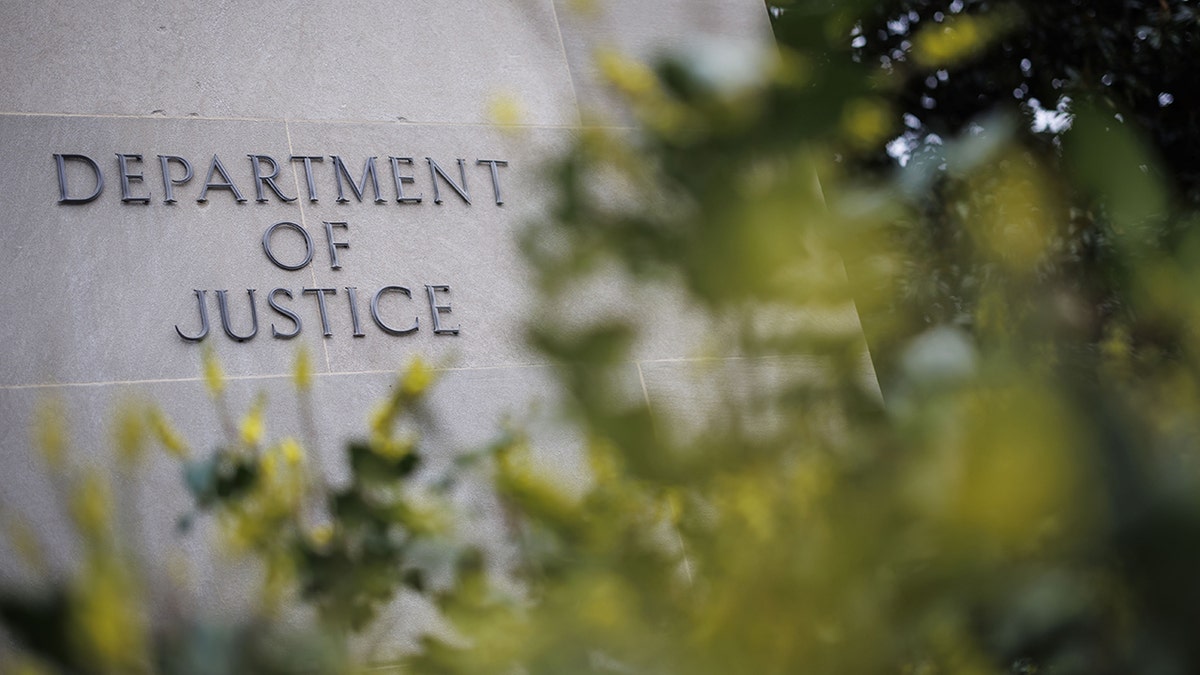
The Trump administration had privately demanded that the university remove Ryan to help resolve a Justice Department probe into the institution’s DEI practices. (Ting Shen/Bloomberg via Getty Images)
CLICK HERE TO GET THE FOX NEWS APP
«Rebranding discrimination does not make it legal, and changing a label doesn’t change the substance,» Megan Redshaw, an attorney at America First Legal, said in a statement at the time. «UVA’s use of sanitized language and recycled job titles is a deliberate attempt to sidestep the law.»
The group took direct aim at Ryan, noting that he joined hundreds of other college presidents in signing a public statement condemning the administration’s «overreach and political interference.»
On Friday, the group vowed to continue to use every available tool to root out DEI.
«This week’s developments make clear: public universities that accept federal funds do not have a license to violate the Constitution,» Redshaw said in a statement to The Associated Press. «They do not get to impose ideological loyalty tests, enforce race and sex-based preferences, or defy lawful executive authority.»
INTERNACIONAL
US Virtual Embassy in Iran urges Americans to evacuate country immediately after partial airspace reopening

NEWYou can now listen to Fox News articles!
The U.S. Virtual Embassy in Iran is insisting that Americans leave the Middle Eastern country amid conflicts in the region after a partial reopening of its airspace.
This comes after a ceasefire agreement between Iran and Israel to end the nearly two-week conflict.
«As of June 26, 2025, Iran’s airspace has been partially reopened, although business trips from Tehran and other major centers may be interrupted,» the embassy said in an advisory. «US citizens should follow local media and consult with commercial airlines to get more information about flights departing from Iran.»
American citizens who wish to leave Iran must travel by land to Azerbaijan, Armenia, Turkey or Turkmenistan if the conditions are safe, the embassy said.
IRAN WARNS OF ‘REAL CAPABILITIES’ IF TRUMP DOESN’T DROP ‘DISRESPECTFUL’ TONE TOWARD SUPREME LEADER
The U.S. Virtual Embassy in Iran is encouraging Americans to leave the Middle Eastern country following a partial reopening of its airspace. (AP Photo)
The U.S. State Department created a crisis information acceptance form for American citizens in Iran to provide information on consular assistance, the embassy noted. But because of the limitations of consular support in Iran, the embassy said it does not anticipate that withdrawal from Iran will be provided with direct assistance from the U.S. government.
U.S. citizens who plan to leave Iran must use the available facilities to leave the country, it said.
The embassy encouraged Americans wanting to leave Iran to take several actions, including having a plan to leave immediately without relying on the U.S. government, keeping their phones charged and communicating with loved ones about their situation, preparing an emergency plan for emergency situations and signing up for alerts from the U.S. government such as the Intelligent Passenger Registration Program (STEP) that would make it easier to find their location in an emergency abroad.
NEW YORK TIMES ATTORNEY TELLS TRUMP NO APOLOGY COMING FOR COVERAGE OF IRAN STRIKES
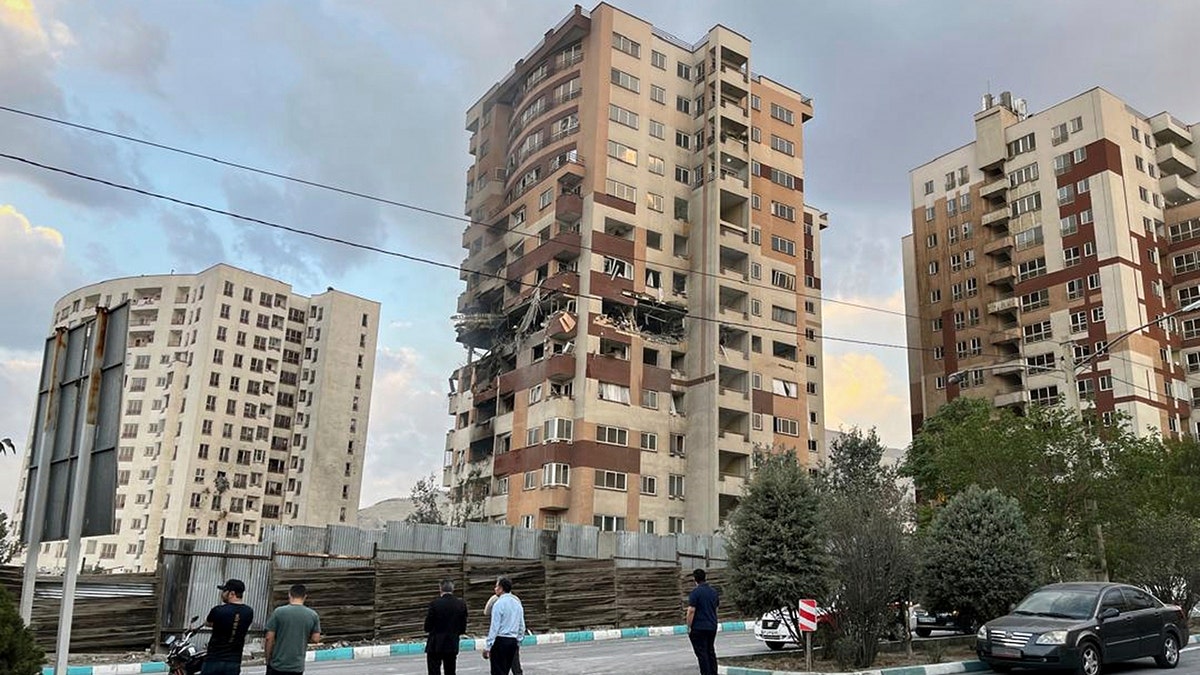
American citizens who wish to leave Iran must travel by land to Azerbaijan, Armenia, Turkey or Turkmenistan if the conditions are safe, the embassy said. (AP Photo/Vahid Salemi)
Americans who cannot leave Iran are advised to find a safe place in their residence or another safe building and to carry food, water, medicine and other essential items with them.
At certain intervals, the Iranian government has limited access to the mobile internet network and physical phone lines, the embassy said, adding that U.S. citizens should be prepared for internet network outages and develop alternative network connectivity and communication plans.
«American-Iranian dual citizens must leave Iran with an Iranian passport and before leaving Iran, they must be ready to face checkpoints and be interrogated by Iranian authorities,» the embassy said. «The state of the Iranian government Dual citizenship does not recognize and will treat American-Iranian dual citizens only as Iranian citizens. US nationals in Iran are at significant risk of interrogation, arrest, and detention. Showing a US passport or proving a connection with the United States is sufficient reason for the arrest of a person by the Iranian authorities.»
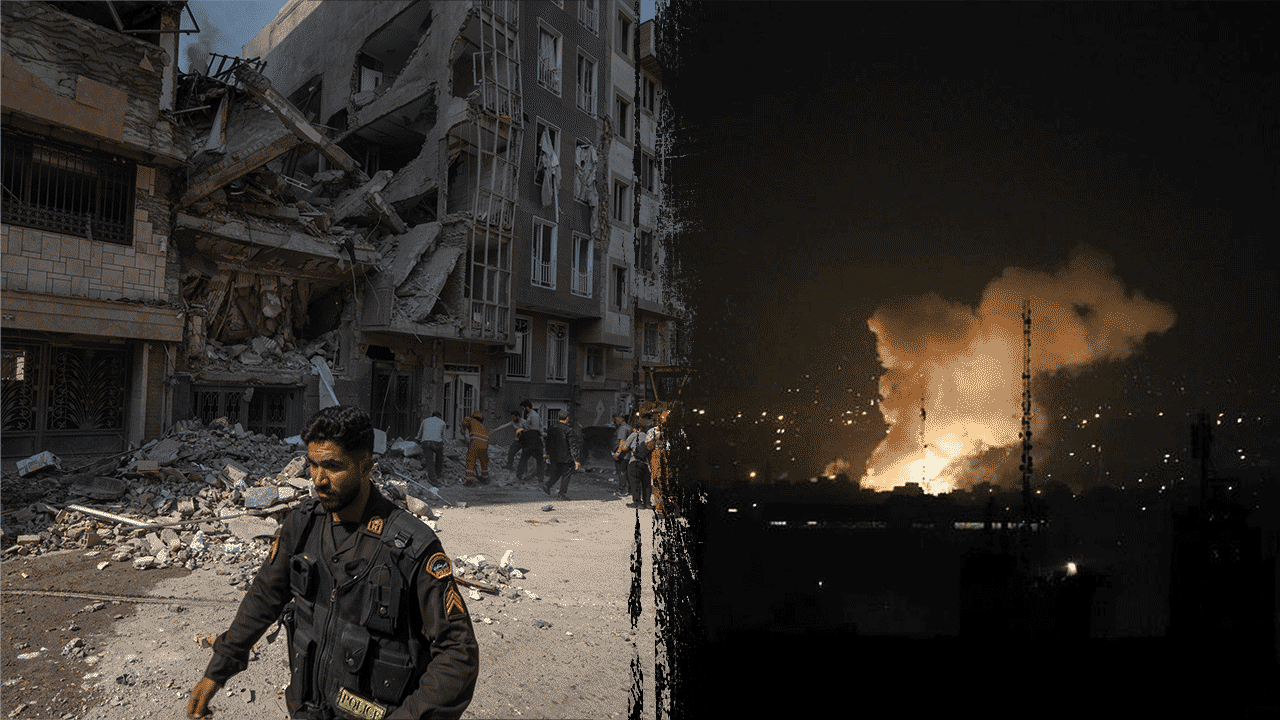
Americans who cannot leave Iran are advised to find a safe place in their residence or another safe building. (AP:Getty)
CLICK HERE TO GET THE FOX NEWS APP
«US passports may be confiscated in Iran,» it continued. «American-Iranian dual citizens should consider that in their Iranian passport, they will receive the necessary visas for the countries they will pass through on their return trip to the United States, so that in case of confiscation of their American passport, they can use [their] Iranian passport in Iran. These people can then apply for a new US passport in the country they will pass through.»
U.S. citizens who reside in Iran with a permanent residence visa, regardless of how long they are staying, must obtain an exit permit when departing Iran, the embassy said, noting that all Iranian passport holders are required to pay exit fees.
-
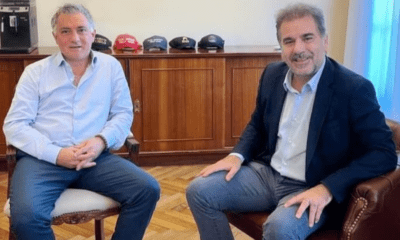
 POLITICA1 día ago
POLITICA1 día agoDesconfianza de los intendentes del PRO sobre el avance de las negociaciones con LLA: “Hasta ahora nadie acercó una propuesta”
-
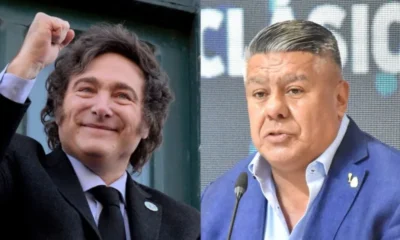
 POLITICA2 días ago
POLITICA2 días agoJavier Milei apuntó duro al Chiqui Tapia por la eliminación de River y Boca: “Le hace mal al fútbol”
-
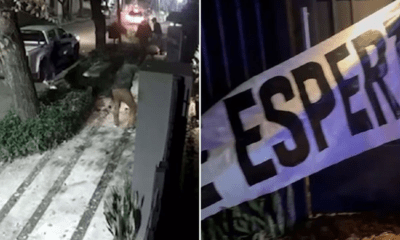
 POLITICA3 días ago
POLITICA3 días agoDetuvieron a una funcionaria del Ministerio de la Mujer bonaerense por el ataque a la casa de José Luis Espert


